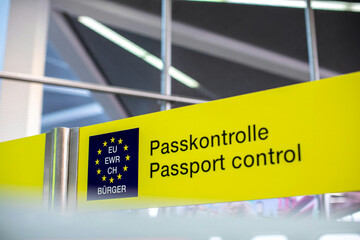Digest REVERA Uzbekistan | June News
- In Uzbekistan, taxpayers are now allowed to allocate overpaid taxes toward the payment of other types of taxes.
- Amendment to the Procedure for Trading in Real Estate Objects
- Legal Entities Creating Child-Directed Content Exempt from Corporate Income Tax
- Further Development of Tax Administration
- Incentives to Promote Foreign Direct Investment in the Country
- "First Opportunity" Principle and Additional Support for Small and Medium-Sized Enterprises (SMEs)
- Regulations on the Liquidation of Banks
- Compulsory Liquidation
- Favorable Conditions to Be Created for the Development of the Furniture and Woodworking Industries
- Amendments to the Tax Code Regarding Tax Arrears
- Enterprises in the Tashkent Region with Foreign Investment to Receive Tax Incentives
- Contact our lawyer for more details
In Uzbekistan, taxpayers are now allowed to allocate overpaid taxes toward the payment of other types of taxes.
Previously, any overpayment could only be credited against future liabilities of the same type of tax. Now, it may also be applied to other tax obligations. Furthermore, the crediting process will occur within three business days instead of the previous fifteen.
The President has signed a law introducing amendments to the Tax Code that simplify the procedure for offsetting overpaid taxes and expand the options for their use.
Specifically, amendments have been made to Article 103 of the Tax Code of the Republic of Uzbekistan, titled "General Provisions on the Offset and Refund of Overpaid and Excessively Collected Taxes."
Under the revised provisions, the amount of tax overpaid or excessively collected from a taxpayer, in the absence of outstanding tax liabilities, shall be refunded to the taxpayer or may be credited toward future tax payments—either of the same type or of other types of taxes. Previously, such refunds or offsets were limited to the same type of tax.
Moreover, offsets against future obligations for other types of taxes shall be processed by the tax authorities within three business days upon receipt of a written or electronic application from the taxpayer, whereas previously, a period of fifteen days was allowed for such processing.
Amendment to the Procedure for Trading in Real Estate Objects
By Order of the Director of the Agency for the Management of State Assets (Reg. No. 2652-4 dated June 9, 2025), amendments and additions have been made to the National Standard for Realtor Services of the Republic of Uzbekistan (NSRSU No. 3) entitled “Organization of Auctions for Real Estate Objects and the Associated Rights.”
Pursuant to Presidential Resolution No. PR–142 dated April 15, 2025, “On Measures to Expedite the Disposal of Assets Accepted on the Banks’ Balance Sheets in Settlement of Debts,” the following changes and additions are introduced into NSRSU No. 3:
Auction Organizer
The auction organizer may be the owner of the property or the holder of an economic right, or it may be a specialized organization.
In the latter case, the specialized organization shall act on the basis of a contract with the owner or rights holder and may conduct the auction either on behalf of such owner/rightsholder or in its own name.
Sale of Real Estate by Legal Entities with Significant State Ownership
The sale of real estate by legal entities, in which the state holds 50% or more of the authorized capital, as well as by legal entities where 50% or more of the authorized capital is owned by legal entities with a state share of 50% or more, shall be conducted via electronic online auctions on the electronic trading platform “E-auksion.”
The only exception is the direct sale of real estate at market value, provided that the asset was not auctioned and was accepted on the bank’s balance sheet in satisfaction of debts.
Invalidity of Auctions or Tenders
Auctions or tenders conducted in violation of the rules established by law may be declared null and void by a court at the request of an interested party.
The invalidation of an auction or tender shall entail the nullity of the contract concluded with the party that won the auction or tender.
The document was published in the National Database of Legislation and entered into force on June 10, 2025.
Legal Entities Creating Child-Directed Content Exempt from Corporate Income Tax
On May 15, 2025, the President of the Republic of Uzbekistan signed Presidential Resolution No. PR–183 “On Measures to Support the Creation and Promotion of National Content Intended for Children.”
Key Provisions of the Resolution
The Resolution outlines priority directions for the creation and promotion of national child-directed content, including:
- Development of content aimed at fostering healthy lifestyle habits, environmental awareness, respect for national values, and patriotism among children;
- Ensuring a safe informational environment for children;
- Development of mechanisms to enhance the ability of parents and children to critically assess online information and identify harmful content.
Tax Incentives for Legal Entities (Effective July 1, 2025 – January 1, 2030)
Legal entities whose annual income derived from the creation of content intended for children constitutes not less than 80% of their total annual income shall be entitled to the following benefits:
- Exemption from corporate income tax;
- Social tax shall be payable at a reduced rate of 1%;
- The right to deduct expenses related to the creation of child-directed content when calculating corporate income tax.
Educational Support Measures
To train highly qualified professionals in the field of child-directed content creation, the “El-Yurt Umidi” Foundation will annually allocate 5 scholarship quotas for bachelor's degree programs at leading international universities.
Further Development of Tax Administration
On June 26, 2025, the Law No. LRU–1071 introduced amendments and additions to various legislative acts aimed at enhancing the efficiency of tax administration.
Key Provisions
Equivalence of Electronic Confirmation to Digital Signature
Documents used in tax relations that are electronically confirmed by means allowing for identification of the individual and expression of their consent shall be treated as equivalent to being signed with an electronic digital signature (EDS).
This ensures broader legal recognition of various digital authentication methods in tax procedures.
Automation of Water Usage Tax Reporting in Agriculture
Tax reporting related to the use of water resources in agriculture, including aquaculture (fish farming), will now be automatically generated based on:
- data from the “Suv hisobi” (Water Accounting) information system;
- data provided by authorized government agencies.
Incentives to Promote Foreign Direct Investment in the Country
On June 23, 2025, the President of the Republic of Uzbekistan signed Presidential Decree No. PD–97 titled "On Additional Measures to Stimulate the Attraction of Foreign Direct Investment into the Country."
Key Provisions
Tax Incentives Extended to More Regions
Tax benefits established by the Tax Code shall now also apply to business entities that:
- Are registered and operate in certain areas of the Tashkent region classified under categories IV and V (as per regional development gradation).
- Previously, such incentives were limited to more remote or underdeveloped regions.
Expanded List of Priority Sectors for FDI Incentives
The List of Economic Sectors Eligible for Incentives related to private foreign direct investment, previously approved by Presidential Decree (available at lex.uz), is amended to include:
- "Agricultural production (cultivation of crops)" as a sector qualifying for tax and investment incentives.
These measures are intended to enhance regional development, diversify investment flows, and promote agriculture as a strategic sector for foreign investment.
"First Opportunity" Principle and Additional Support for Small and Medium-Sized Enterprises (SMEs)
Pursuant to the Presidential Decree (source: official channel), the following measures will be in effect starting from July 1, 2025:
Regulatory Moratorium
- A moratorium is introduced until January 1, 2028 on the adoption of new regulatory legal acts that impose additional obligations on small and medium-sized businesses (SMEs).
Unified Effective Dates for New Rules
Any new or tightened regulatory instruments for businesses must adhere to the “Uniform Effective Date” principle:
- Such provisions may enter into force only on January 1 or July 1 of the respective year.
"First Opportunity" Principle
Until January 1, 2028, the “First Opportunity” principle will apply:
- Small business entities that commit an administrative offense for the first time in the field of trade or entrepreneurship within their first year of activity shall be exempt from administrative liability.
Small business entities that commit an administrative offense for the first time in the field of trade or entrepreneurship within their first year of activity shall be exempt from administrative liability.
Exemption from Tax Audits for Voluntary Liquidation
From September 1, 2025, no tax audits will be conducted during the voluntary liquidation of SMEs that meet all of the following criteria:
- Their total revenue from the sale of goods (or services) over the last three years does not exceed UZS 10 billion;
- They have no outstanding liabilities to the state budget or creditors, and they regularly file tax reports;
- Their compliance risk level is classified as "low" in the electronic “Risk Analysis” system.
Startup Financing Initiative
In order to finance startup projects, the Ministry of Economy and Finance, together with: commercial banks with more than 50% state ownership, and venture capital funds, must raise USD 50 million from foreign sources by April 1, 2026.
These reforms are designed to foster a supportive environment for entrepreneurship, reduce compliance burdens, and boost innovation and access to capital for startups in Uzbekistan.
Regulations on the Liquidation of Banks
Pursuant to the newly enacted Law “On the Resolution and Liquidation of Banks” (source), the termination of a bank’s activities and its liquidation may be carried out in one of the following forms:
Voluntary Liquidation
- A bank may undergo voluntary liquidation if:
- It is not insolvent, and
- There is no high probability of insolvency.
- Voluntary liquidation may only proceed upon obtaining the consent of the Central Bank of the Republic of Uzbekistan.
Compulsory Liquidation
- A non-systemically important bank may be subject to compulsory liquidation under the circumstances specified by the Law “On Banks and Banking Activity.”
- Compulsory liquidation shall be executed based on a resolution of the Board of the Central Bank, which includes:
- Revocation of the bank’s license, and
- Initiation of compulsory liquidation procedures.
Forms of Compulsory Liquidation
Compulsory liquidation may be conducted:
- Out of court (extrajudicially), or
- Through judicial proceedings.
Mechanisms During Compulsory Liquidation
During the compulsory liquidation process, the following mechanisms may be applied:
• Transfer of the assets and liabilities of the liquidated bank to another bank;
• Sale of the bank’s assets to third parties.
These regulations aim to ensure orderly resolution of banking institutions, protecting depositors and maintaining financial stability.
Favorable Conditions to Be Created for the Development of the Furniture and Woodworking Industries
Pursuant to Presidential Decree No. PD–193 dated May 27, 2025, “On Additional Measures to Create Favorable Conditions for the Development of the Furniture and
Woodworking Industries,” the following provisions are established:
Development Targets for 2025–2028
- 30% increase in the volume of furniture and woodworking product manufacturing;
- Export volume to reach USD 100 million;
- 50,000 people to be provided with income-generating employment within the sector.
Customs Duty Incentives
Until January 1, 2029, a 1% customs duty rate shall apply to the import of raw materials, spare parts, fittings, and accessories used in furniture production.
Self-Employment Rights
From July 1, 2025, individual entrepreneurs are granted the right to engage in furniture manufacturing activities at their residential premises.
Reimbursement of Certification Expenses
From August 1, 2025, a procedure will be implemented for the reimbursement of 50% of expenses incurred by domestic furniture technologists in obtaining specialized professional qualification certificates from recognized organizations in developed foreign countries.
These measures aim to boost industrial output, enhance exports, and stimulate employment in Uzbekistan’s furniture and woodworking sectors.
Amendments to the Tax Code Regarding Tax Arrears
Law No. LRU–1069 dated June 16, 2025, introduced amendments and additions to the Tax Code of the Republic of Uzbekistan. These changes affect the regulation of tax arrears accounting, the accrual of penalties, and the definitions of "bad debt" and "legal enforcement measures."
According to the amendments
Article 16 of the Tax Code – Taxes and fees shall not be considered legal enforcement measures when applied within the framework of enforcement proceedings.
Article 55 of the Tax Code – Tax arrears shall be accounted for separately on the basis of enforcement documents included in the Unified Electronic Temporary Data Storage Database of the Registry of Obligations maintained by the Bureau of Compulsory Enforcement under the General Prosecutor's Office.
Article 60 of the Tax Code – A bad (irrecoverable) debt shall also be recognized as such if not repaid within 10 years from the date of its entry into the Registry of Obligations (in addition to the previously established grounds such as a court decision terminating the obligation, recognition of the debtor as bankrupt, liquidation, death of the debtor, or expiration of the statute of limitations).
Article 110 of the Tax Code – Penalties shall not accrue on tax arrears based on enforcement documents entered into the Registry of Obligations, starting from the date of entry of such documents into the Registry.
These amendments are intended to improve the administration of tax debts and clarify the legal framework for enforcement and accounting procedures.
Enterprises in the Tashkent Region with Foreign Investment to Receive Tax Incentives
On June 23, 2025, the President of the Republic of Uzbekistan signed Presidential Decree No. PD–97 “On Additional Measures to Stimulate the Attraction of Foreign Direct Investment.”
In accordance with the Decree, enterprises established with foreign direct investment and operating in districts of the Tashkent region categorized as zones 4 and 5, and engaged in the production of goods or the provision of services in sectors included in the List of Priority Economic Sectors, are now eligible for preferential tax treatment depending on the volume of foreign direct private investment:
- From USD 300,000 to USD 3 million – tax benefits for a 3-year period;
- Over USD 3 million to USD 10 million – tax benefits for a 5-year period;
- Over USD 10 million – tax benefits for a 7-year period.
Additionally, the sector of “cultivation of agricultural products” has been added to the official List of Economic Sectors eligible for incentives granted to direct private foreign investment projects.
Agricultural enterprises, including farmers’ and dehkan (smallholder) households, will be eligible for preferential loans of up to 15 million UZS per hectare for the cultivation of fodder crops for the livestock sector. These loans are to be repaid within six months, at an interest rate not exceeding the base rate of the Central Bank, with a 2% bank margin included.
The following legal acts have been amended accordingly:
- Presidential Decree dated April 11, 2025 “On Additional Measures to Stimulate the Attraction of Direct Private Foreign Investment”;
- Presidential Resolution No. PR–52 dated December 15, 2021, “On Measures for State Support of the Fruit and Vegetable Sector, Further Development of the Cluster System, and Cooperation in the Industry.”
The Decree was published in the National Database of Legislation and entered into force on June 25, 2025.
Contact our lawyer for more details
Write to lawyerAttention Journalists: Use of REVERA website materials in publications is only allowed with our written permission.


